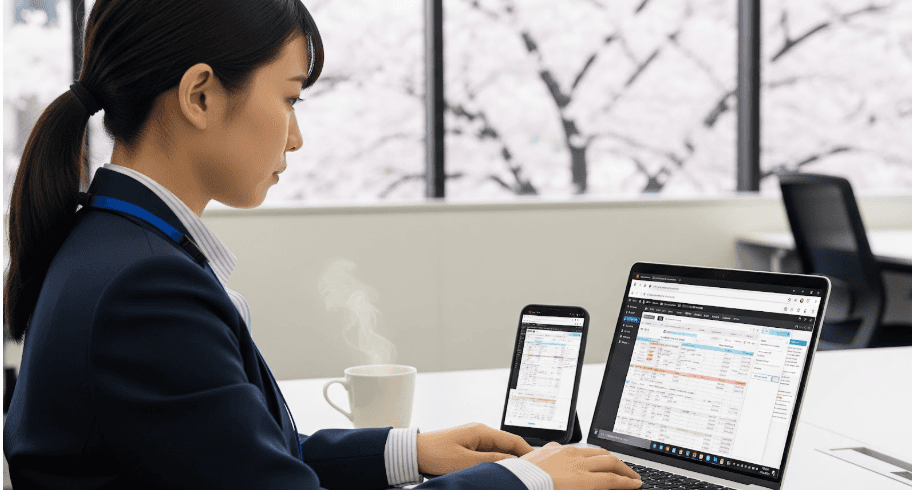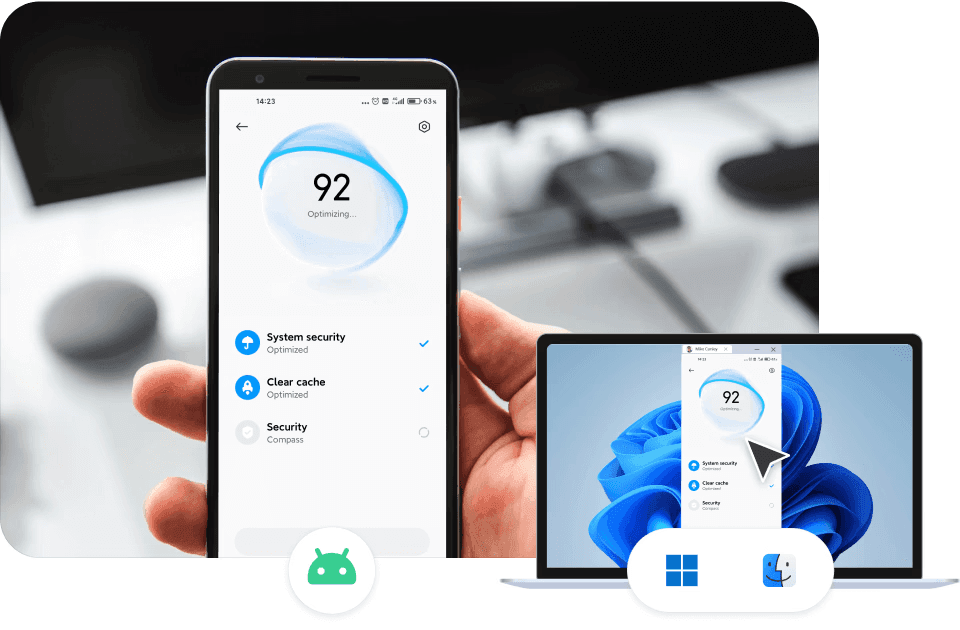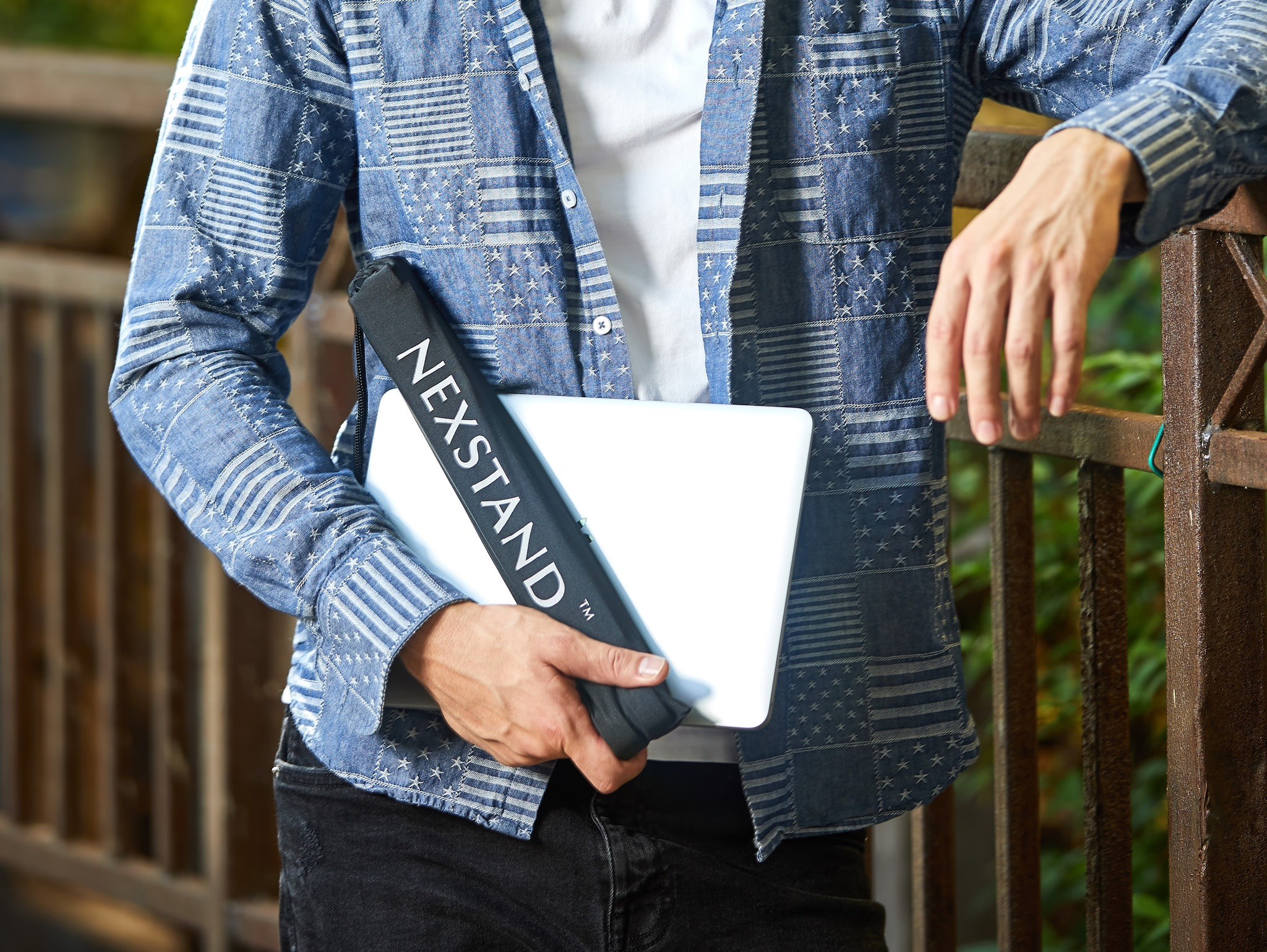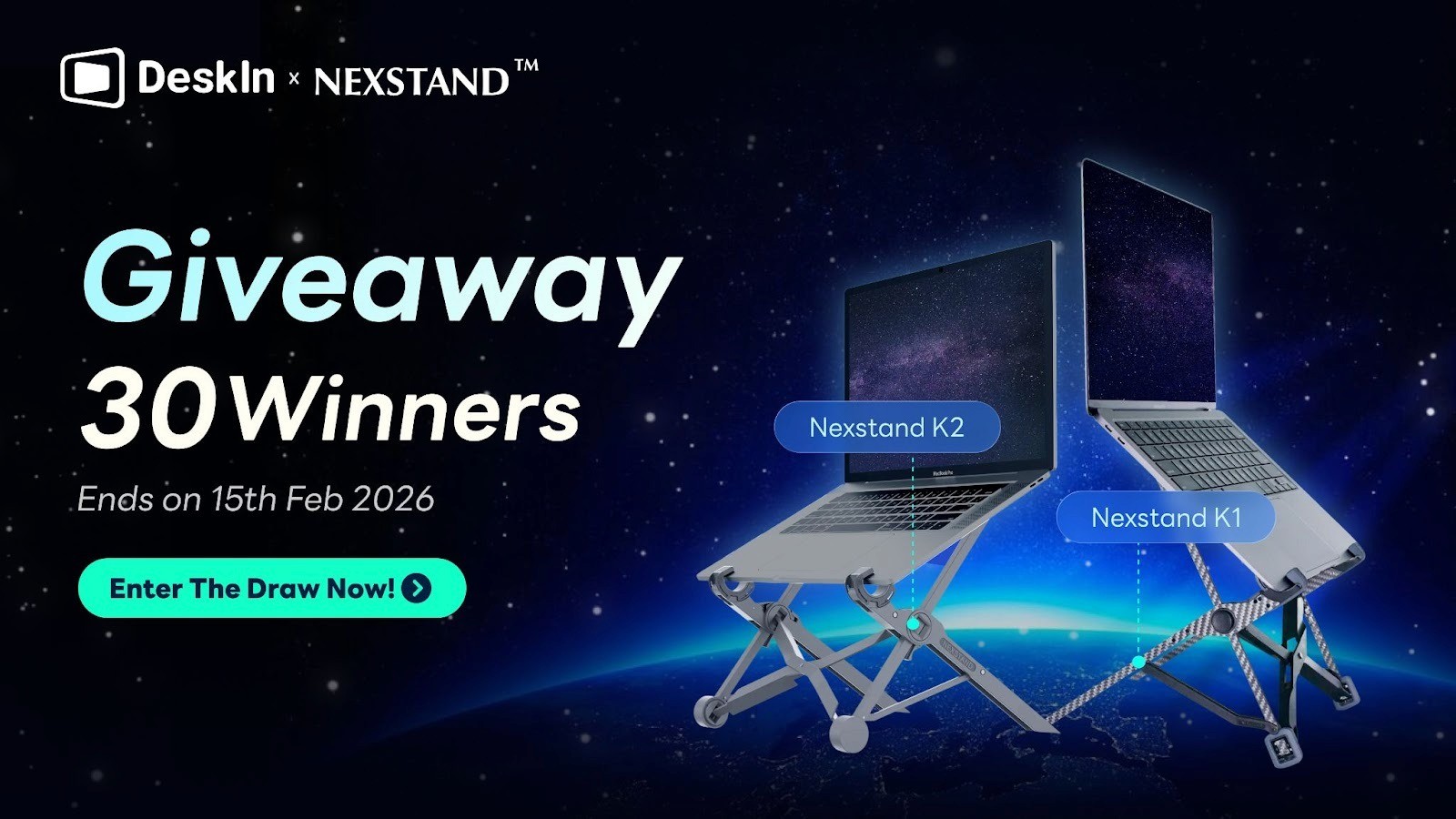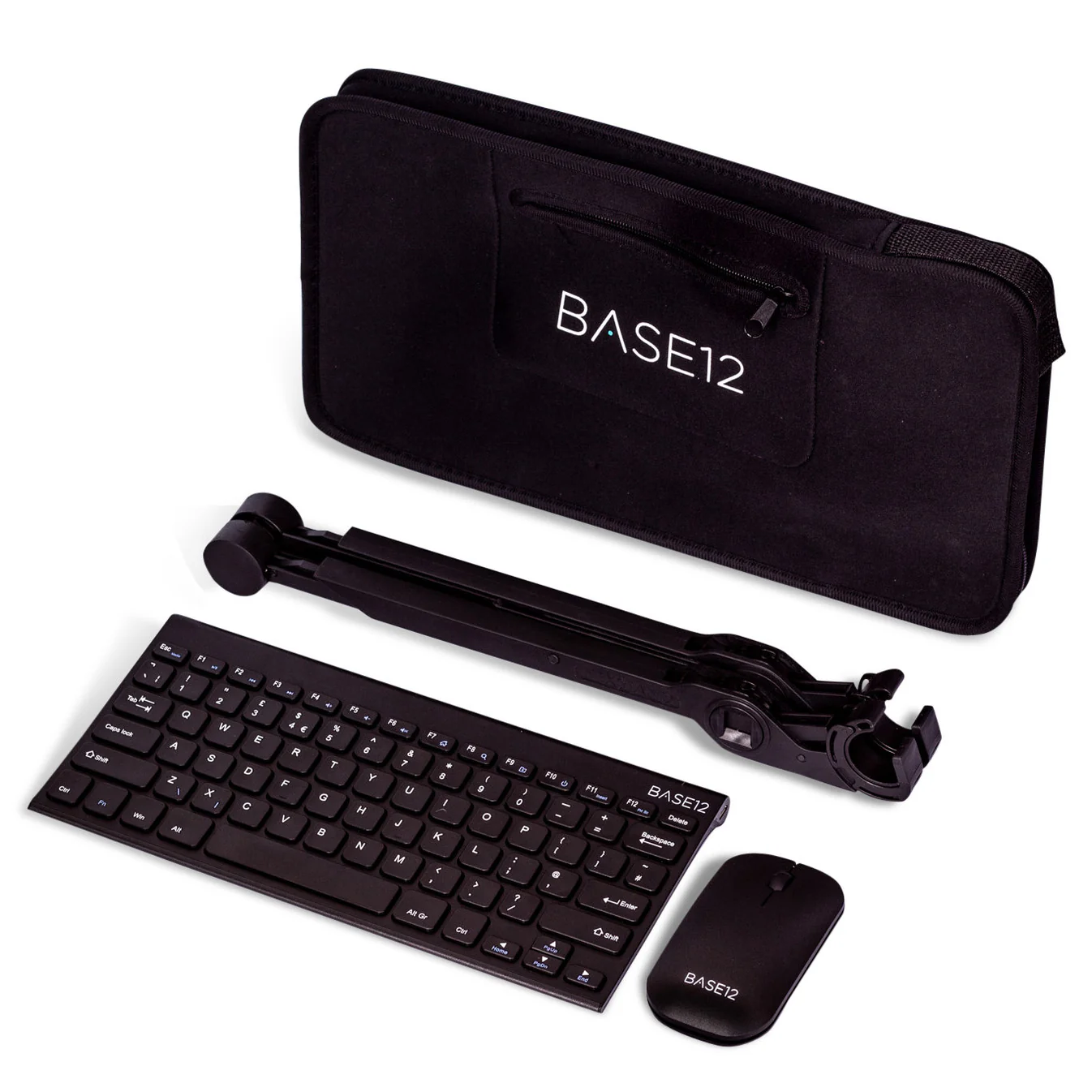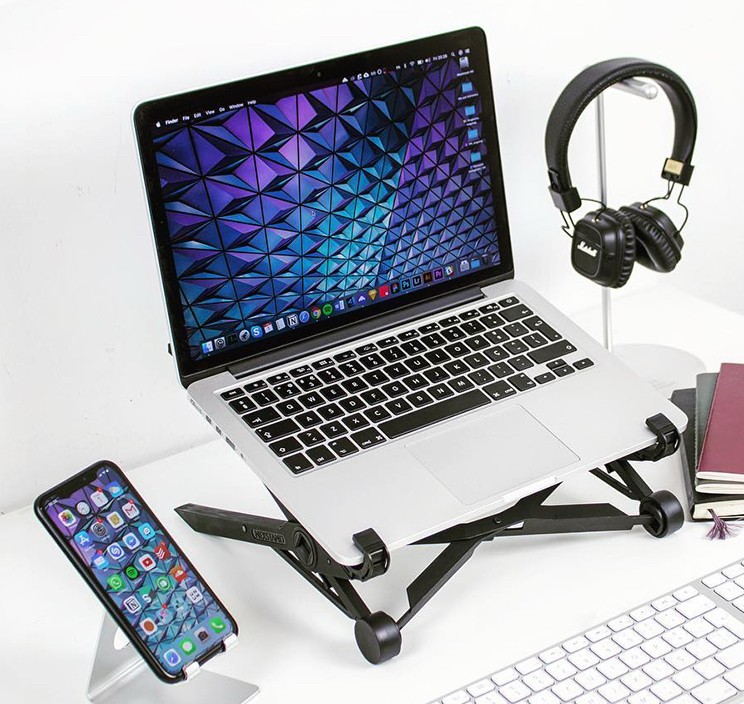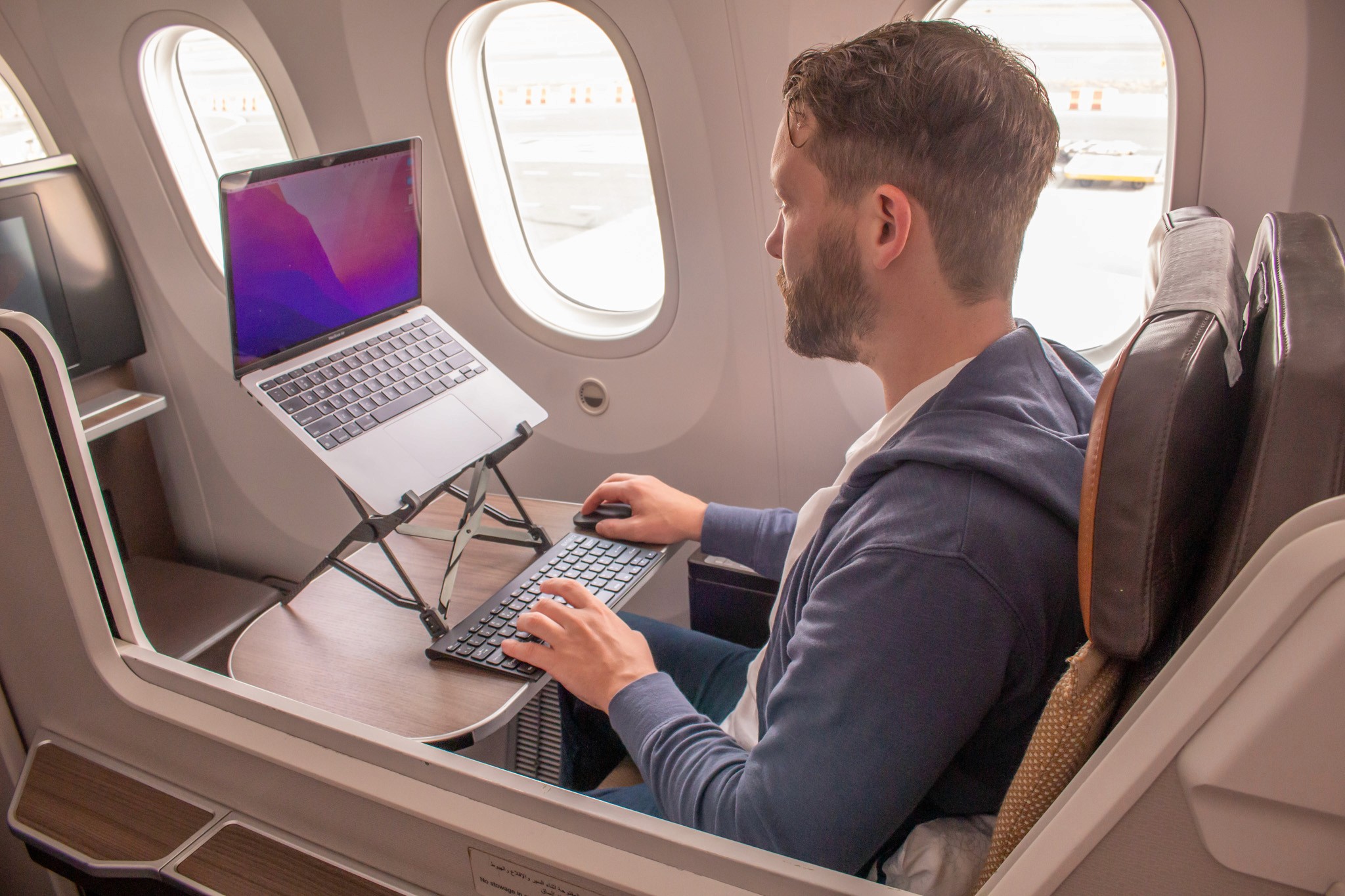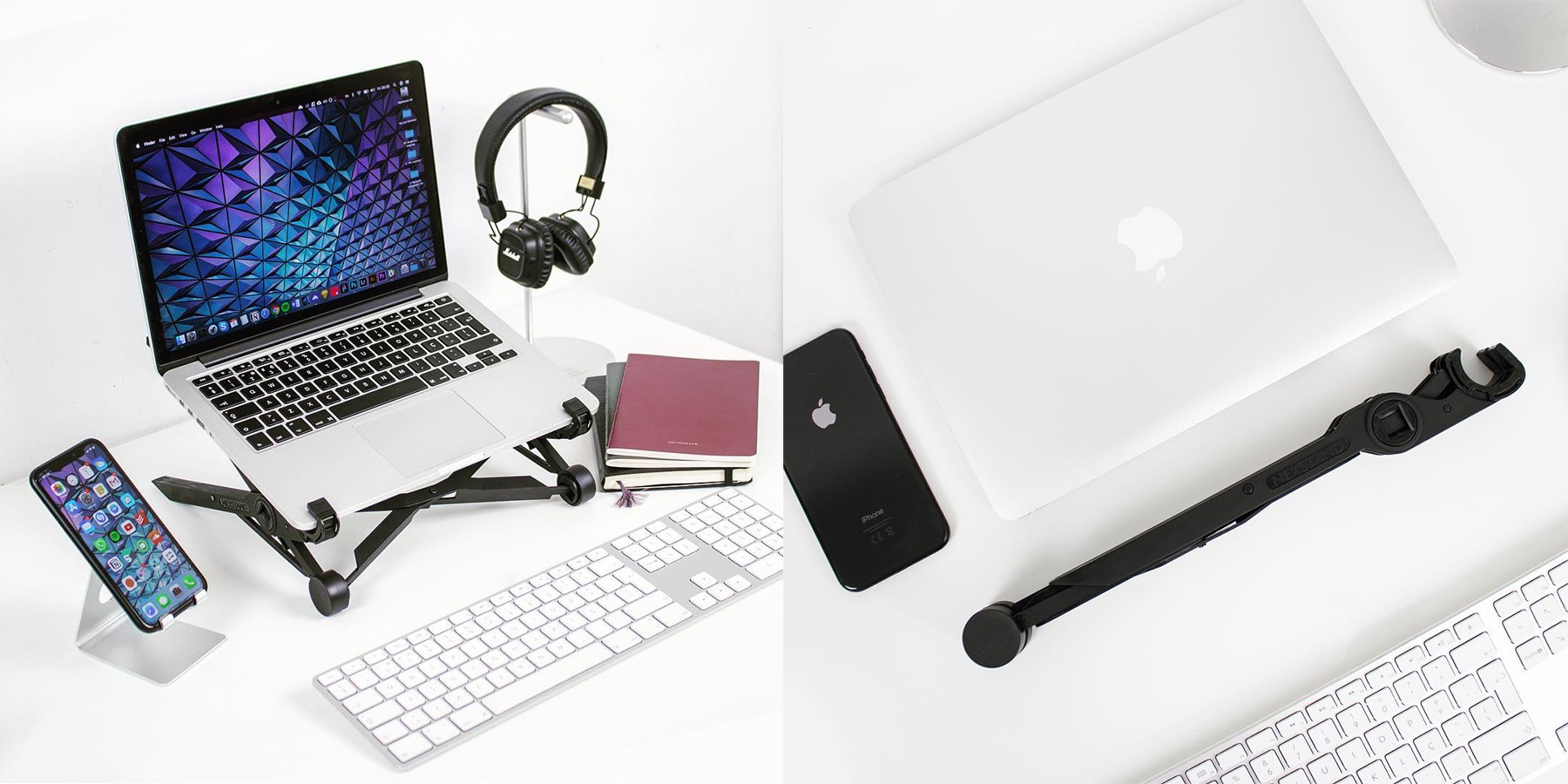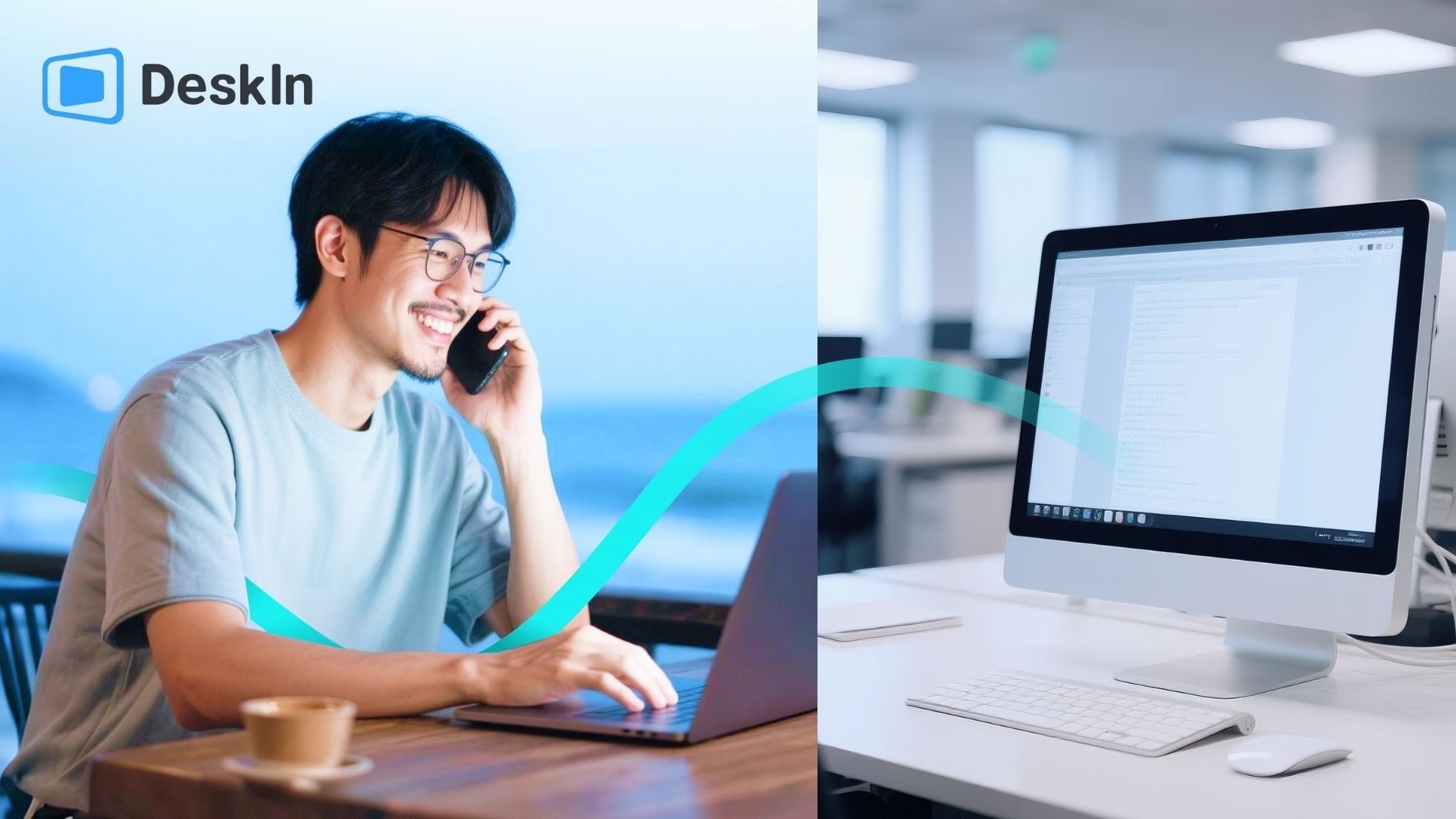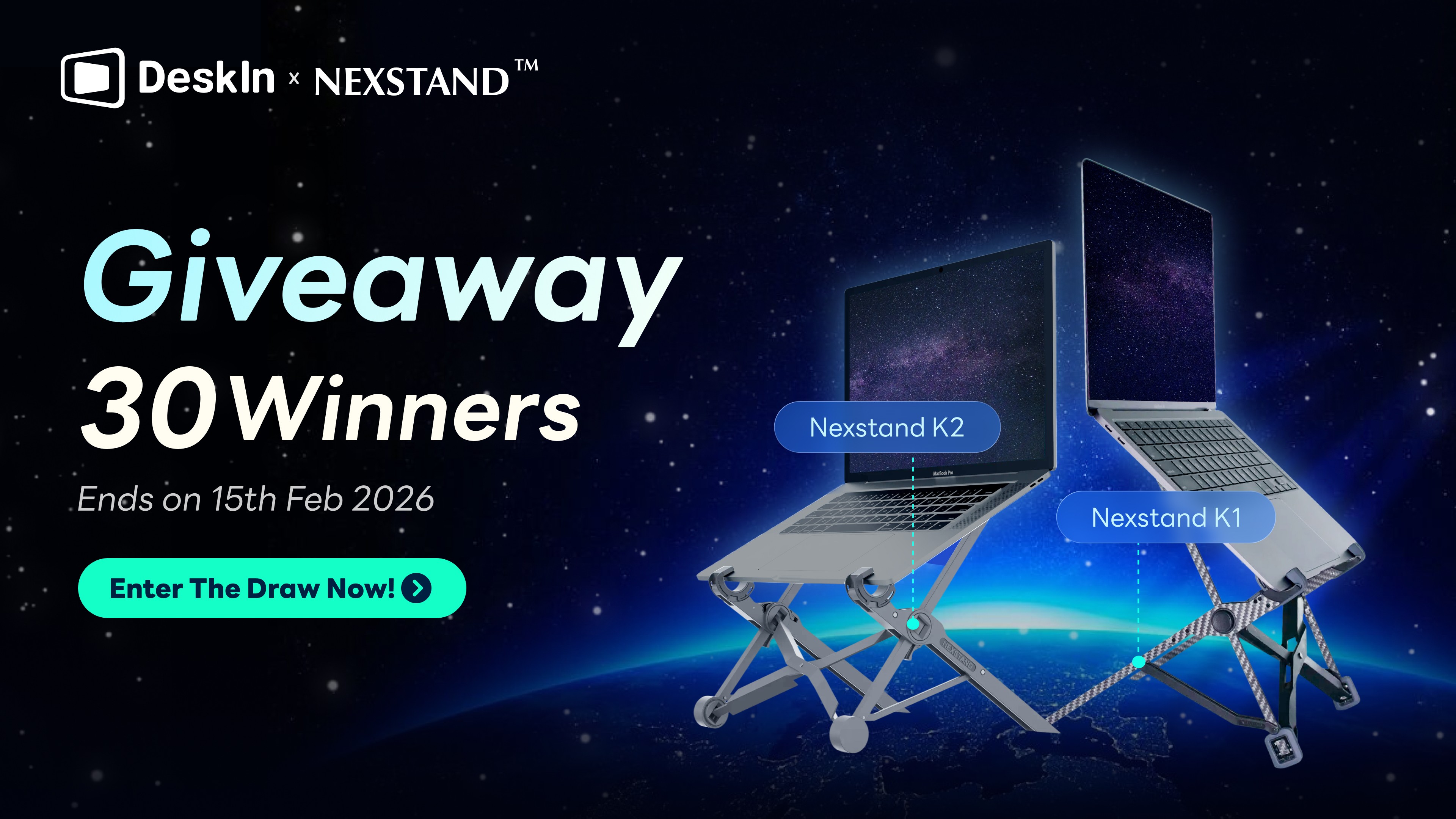If you're looking for remote access software with unattended access that feels just like being physically present, you're not alone. Many of us need to control multiple devices—PCs, laptops, even smartphones. But once we hit the device limit, we realize that some upgraded plans are just too expensive to justify.
While there are many tools available on the market, not all solutions offer the same features or pricing. In this guide, we'll review 5 top unattended remote access tools, covering their pros, cons, and pricing to help you pick the best fit. Ready to simplify remote management? Keep reading to find the ideal fit for your needs.
🏝️ Related Reading:
Top 6 Remote Work Software for Productivity and Collaboration
5 Best Mirror Screen Apps for Android in 2025 (Detailed Review)
Key Features of the Best Unattended Remote Access Software
To choose the best unattended remote access software that fits your needs, you may have to evaluate several key factors. Here's a guide to help you make an informed decision:
Security & Compliance: The software should offer robust security features, such as end-to-end encryption (e.g., 256-bit AES), multi-factor authentication (MFA). And it should comply with standards like HIPAA, GDPR, and PCI DSS.
Performance: Look for solutions that provide stable connections, low latency, and minimal downtime. This is crucial for tasks like remote maintenance and real-time support.
Ease of Use: The software should be user-friendly, with straightforward installation and configuration processes.
Cross-Platform Compatibility: Choose software that supports various operating systems (Windows, macOS, Linux) and devices (desktops, laptops, mobile devices) to ensure flexibility.
Cost: Evaluate the pricing to find a solution that fits your budget. Some software offers free versions with limited features, while others provide comprehensive plans suitable for enterprises.
1. DeskIn: Best Remote Access Application for Free
DeskIn is an all-in-one remote access software. It enables seamless unattended control over devices. File transfers and remote printing can be a breeze with this tool. Beyond basic remote desktop functions, it offers powerful collaboration features like screen extension, screen casting, voice chat, annotation tools, and shared clipboard. It is an ideal choice for both IT support and team collaboration.
Supporting cross-platform connectivity between Windows, macOS, iOS, and Android, DeskIn ensures users can access and manage any device from anywhere. It can provide smooth and no lag remote sessions, with 200+ global nodes and ultra-low latency (under 40ms). Image quality can be delivered with up to 4K resolution as well, making it perfect for graphics-intensive tasks. You could remotely access your work computer from home.
For robust security, DeskIn applies 256-bit AES encryption and includes additional protective features. You can simply customize a password for access. While Wake-on-LAN is available, you can also make use of privacy features like privacy mode and remote lock screen to safeguard your device during sessions. Best of all, DeskIn offers powerful free version as well as affordable plans tailored to both personal and business needs.
👉 Click here to download DeskIn

✍️ Pros:
Connect Windows, macOS, iOS, and Android devices effortlessly.
Provide 4K resolution image quality with <40ms latency.
Offer 200+ global nodes to ensure lightning-fast speed.
Apply robust security features: 256-bit AES encryption, password protection, and privacy controls.
Power on devices remotely and lock screens for security.
Support screen sharing, annotations, voice chat, shared clipboard, etc.
Cons:
Currently unavailable for Linux users.
2. ScreenConnect: Easy to Use but High-cost
ScreenConnect is a highly-rated remote access and support solution. This unattended remote software supports all major platforms, including Windows, macOS, Linux, Android, and iOS.
Security is its core strength. It uses AES-256 encryption, supports multi-factor authentication (MFA), integrates with LDAP, and provides detailed audit logs. One standout feature is a one-time admin login. It generates unique encrypted credentials for each session, greatly maximizing protection. It is the best secure remote desktop.
Beyond security, ScreenConnect excels in app integrations. It can seamlessly connect with tools like Zendesk, Outlook, Acronis, and Passportal. Plus, its open API makes it easy to build custom extensions to fit specific workflows. However, due to the advanced features offered, the pricing is considerably higher than many other remote access solutions.

🌰 Pros:
Renowned for its flexibility and ease of use with its intuitive page.
Works on Windows, macOS, Linux, Android, and iOS.
Provide enterprise-grade security: AES-256, MFA, LDAP, and one-time session credentials.
Compatible with Zendesk, Outlook, and more via API.
Tailor features to fit business needs.
Cons:
Advanced features may require training.
More expensive than many other unattended remote software.
3. Microsoft Remote Desktop: Built-in but Limited Versions
Microsoft Remote Desktop is one of the top free, built-in remote access software programs for Windows. It supports unattended access on Windows 8, 10, and 11. However, only Pro, Enterprise, and Server editions can be accessed remotely. If you're using a Home edition, you can only connect to other devices, but others can't connect to yours.
The interface of this software is clean and user-friendly, making it easy to use for both beginners and IT users. Basic features, such as transferring files remotely, remote printing, and document sharing, are supported. During the sessions, the connection quality is generally smooth. It can deliver high-definition visuals, making remote work or support more efficient. All sessions are encrypted as well, and you can also enable Network Level Authentication (NLA) for extra security.
👀 You might also want to know:
Easily Use Microsoft Remote Desktop On Windows 11[Step by Step Guide]
Microsoft Remote Desktop Is Shutting Down? Details You Need to Know!

🍞 Pros:
Completely free and built into Windows
Clear interface and easy to use
Supports file transfer, remote printing, and sharing
Encrypted connection for robust security
Cons:
Only Pro, Enterprise, and Server editions can be accessed remotely
Setup may require extra configuration on networks
4. AnyDesk: Cross-Platform but Flawed Bugs

AnyDesk is a popular remote access software known for its reliable unattended remote access features. It supports seamless cross-platform control—whether you're connecting from a Chromebook to a Windows PC, Linux to Windows, or Windows to Windows. This makes it an excellent option for those needing remote PC attended access across various operating systems.
However, some users have encountered bugs that affect the experience. For example, the Chromebook client sometimes fails to disconnect properly, and on Windows, the Control and Alt keys occasionally get stuck, which significantly reduces usability.
Pros:
Cross-platform & device support, from Chromebook, Linux, Mac to Windows.
Offers stable unattended remote access with low latency.
Lightweight application with fast installation and minimal setup required.
Cons:
Some users report frustrating bugs, like stuck keys on Windows.
Chromebook client occasionally fails to disconnect, hurting overall usability.
5. TeamViewer: Famous but Expensive

TeamViewer is one of the most recognized names in the remote access software industry, with a long-standing reputation and millions of users worldwide. It offers powerful unattended access features, allowing you to control remote devices anytime without needing on-site approval. With a history of reliability and trust, TeamViewer remains a top choice for many businesses and IT professionals.
However, its pricing can be a major drawback—often several times higher than other alternatives. Many users find it more cost-effective to switch to more affordable remote control solutions with similar features.
Pros:
Trusted brand with years of experience in remote access technology.
Provides reliable and secure unattended access for business and personal use.
Cons:
Significantly more expensive than most remote access software.
Cost discourages individual users and small teams from long-term use.
Note: For a much more favorable tool, you should choose the first software, DeskIn, which has powerful free plan and cheap pro plans.
6. Splashtop: Powerful but Cost Increase
Splashtop is a reliable remote access solution that works across Windows, macOS, and Linux computers, as well as iOS and Android mobile devices. For business users, it also supports remote access to Chromebooks. This unattended remote access software offers useful features like drag-and-drop transferring files remotely and remote printing, making everyday tasks more convenient.
When it comes to performance, Splashtop delivers smooth video streaming with up to 4K resolution at 60 frames per second. This makes it a strong choice for designers, editors, and IT teams who need a responsive and stable connection.
Another standout feature is multi-monitor support, which allows you to view and interact with multiple remote screens. You can switch between displays or view them all in one window. It is ideal for multitasking and extended setups.

📚 Pros:
Supports all major OS platforms and mobile devices
Smooth 4K/60FPS video with low latency
Multi-monitor viewing in one window
TLS 1.2 and 256-bit AES encryption protect every session
Cons:
SSO and SAML are only available for premium plans
The interface may feel basic compared to higher-end competitors
7. HelpWire: Free with Limited Functions

HelpWire recently launched its free unattended remote access feature, making it a compelling option for both personal and business use. It stands out for offering essential remote control functions at no cost, which is a major plus for budget-conscious users. Whether you need to access a remote desktop or assist clients, HelpWire provides a lightweight and accessible solution.
That said, HelpWire lacks the advanced features seen in well-established brands like TeamViewer, which may limit its appeal to professional IT teams or enterprises.
Pros:
Offers free unattended remote access for both personal and commercial use.
Simple setup and user-friendly interface ideal for quick connections.
Cons:
Currently, it does not support unattended access for Linux users, especially Ubuntu.
Lacks advanced tools and integrations compared to premium solutions like TeamViewer.
8. Zoho Assist: Online but Slow
Zoho Assist is a remote support tool that offers strong unattended access features. It works on Windows (XP and up), macOS (10.9 and up), Linux, and Android (5.0 and up). Apart from the desktop app, it also offers a web-based version, which has nearly the same functions as the desktop one. With this tool, you can quickly remote access into Windows and other devices with ease.
Besides common features like file transfer, this unattended remote access software includes useful tools like a notes feature to leave messages on the remote computer. It also allows remote audio listening, but only on Windows systems. However, the connection speed can be slower compared to other tools.

💡 Pros:
Supports a wide range of platforms and has a web version
Uses strong encryption (TLS 1.2, AES 256-bit) for secure access
Includes note-taking and remote audio features
Easy to use
Cons:
Remote audio only works on Windows
Slower connection speed than some competitors
Some advanced features require paid plans
Other Tools for Unattended Remote Access
After exploring the 8 main unattended remote access software options, there are still a few more remote access tools worth your attention. Let's take a look at some solid alternatives:
RustDesk: A free and open-source alternative that supports unattended access and works across both WAN and LAN networks. While it may require manual setup on each device, it's a great option for those seeking a cost-free solution. RustDesk is especially known for its Linux compatibility, making it a strong substitute.
RealVNC: Highly user-friendly—just log in and search for your device to start remote access. It's also budget-friendly, costing just a bit over $3 per device per month.
RemotePC: Offers efficient remote access without heavy system resource usage. Even on slower networks, it allows smooth remote sessions and task execution.
Comparison: Which is the Best Unattended Remote Access Software
To help you choose the right option, we've put together a comparison of the unattended remote access software below.
DeskIn: Offers a fully featured free version. In addition to unattended access, it includes essential office tools like clipboard sync and screen sharing, and runs smoothly in high definition.
ScreenConnect: Features a clean and easy-to-use interface.
Microsoft Remote Desktop: Completely free and built into Windows systems.
AnyDesk: Supports remote access across major platforms and mainstream devices.
TeamViewer: Trusted by many due to its strong brand reputation and global recognition.
Splashtop: Delivers high performance with 60 FPS support and multi-monitor compatibility.
HelpWire: Free for both personal and commercial use.
Zoho Assist: Accessible through a fully functional web-based interface.
Final Verdict
After examining various unattended remote access tools, it's clear each has unique strengths. ScreenConnect excels in enterprise security, Splashtop delivers premium performance, and Microsoft Remote Desktop offers native Windows integration.
For someone seeking the best combination of features and value, DeskIn emerges as the top recommendation. It strikes the perfect balance with broad device compatibility, exceptional performance, and ease of use. With strong security and cost-effective plans, it's a great choice for users who want performance without overpaying.
If you're looking for remote access software with unattended access that feels just like being physically present, you're not alone. Many of us need to control multiple devices—PCs, laptops, even smartphones. But once we hit the device limit, we realize that some upgraded plans are just too expensive to justify.
While there are many tools available on the market, not all solutions offer the same features or pricing. In this guide, we'll review 5 top unattended remote access tools, covering their pros, cons, and pricing to help you pick the best fit. Ready to simplify remote management? Keep reading to find the ideal fit for your needs.
🏝️ Related Reading:
Top 6 Remote Work Software for Productivity and Collaboration
5 Best Mirror Screen Apps for Android in 2025 (Detailed Review)
Key Features of the Best Unattended Remote Access Software
To choose the best unattended remote access software that fits your needs, you may have to evaluate several key factors. Here's a guide to help you make an informed decision:
Security & Compliance: The software should offer robust security features, such as end-to-end encryption (e.g., 256-bit AES), multi-factor authentication (MFA). And it should comply with standards like HIPAA, GDPR, and PCI DSS.
Performance: Look for solutions that provide stable connections, low latency, and minimal downtime. This is crucial for tasks like remote maintenance and real-time support.
Ease of Use: The software should be user-friendly, with straightforward installation and configuration processes.
Cross-Platform Compatibility: Choose software that supports various operating systems (Windows, macOS, Linux) and devices (desktops, laptops, mobile devices) to ensure flexibility.
Cost: Evaluate the pricing to find a solution that fits your budget. Some software offers free versions with limited features, while others provide comprehensive plans suitable for enterprises.
1. DeskIn: Best Remote Access Application for Free
DeskIn is an all-in-one remote access software. It enables seamless unattended control over devices. File transfers and remote printing can be a breeze with this tool. Beyond basic remote desktop functions, it offers powerful collaboration features like screen extension, screen casting, voice chat, annotation tools, and shared clipboard. It is an ideal choice for both IT support and team collaboration.
Supporting cross-platform connectivity between Windows, macOS, iOS, and Android, DeskIn ensures users can access and manage any device from anywhere. It can provide smooth and no lag remote sessions, with 200+ global nodes and ultra-low latency (under 40ms). Image quality can be delivered with up to 4K resolution as well, making it perfect for graphics-intensive tasks. You could remotely access your work computer from home.
For robust security, DeskIn applies 256-bit AES encryption and includes additional protective features. You can simply customize a password for access. While Wake-on-LAN is available, you can also make use of privacy features like privacy mode and remote lock screen to safeguard your device during sessions. Best of all, DeskIn offers powerful free version as well as affordable plans tailored to both personal and business needs.
👉 Click here to download DeskIn

✍️ Pros:
Connect Windows, macOS, iOS, and Android devices effortlessly.
Provide 4K resolution image quality with <40ms latency.
Offer 200+ global nodes to ensure lightning-fast speed.
Apply robust security features: 256-bit AES encryption, password protection, and privacy controls.
Power on devices remotely and lock screens for security.
Support screen sharing, annotations, voice chat, shared clipboard, etc.
Cons:
Currently unavailable for Linux users.
2. ScreenConnect: Easy to Use but High-cost
ScreenConnect is a highly-rated remote access and support solution. This unattended remote software supports all major platforms, including Windows, macOS, Linux, Android, and iOS.
Security is its core strength. It uses AES-256 encryption, supports multi-factor authentication (MFA), integrates with LDAP, and provides detailed audit logs. One standout feature is a one-time admin login. It generates unique encrypted credentials for each session, greatly maximizing protection. It is the best secure remote desktop.
Beyond security, ScreenConnect excels in app integrations. It can seamlessly connect with tools like Zendesk, Outlook, Acronis, and Passportal. Plus, its open API makes it easy to build custom extensions to fit specific workflows. However, due to the advanced features offered, the pricing is considerably higher than many other remote access solutions.

🌰 Pros:
Renowned for its flexibility and ease of use with its intuitive page.
Works on Windows, macOS, Linux, Android, and iOS.
Provide enterprise-grade security: AES-256, MFA, LDAP, and one-time session credentials.
Compatible with Zendesk, Outlook, and more via API.
Tailor features to fit business needs.
Cons:
Advanced features may require training.
More expensive than many other unattended remote software.
3. Microsoft Remote Desktop: Built-in but Limited Versions
Microsoft Remote Desktop is one of the top free, built-in remote access software programs for Windows. It supports unattended access on Windows 8, 10, and 11. However, only Pro, Enterprise, and Server editions can be accessed remotely. If you're using a Home edition, you can only connect to other devices, but others can't connect to yours.
The interface of this software is clean and user-friendly, making it easy to use for both beginners and IT users. Basic features, such as transferring files remotely, remote printing, and document sharing, are supported. During the sessions, the connection quality is generally smooth. It can deliver high-definition visuals, making remote work or support more efficient. All sessions are encrypted as well, and you can also enable Network Level Authentication (NLA) for extra security.
👀 You might also want to know:
Easily Use Microsoft Remote Desktop On Windows 11[Step by Step Guide]
Microsoft Remote Desktop Is Shutting Down? Details You Need to Know!

🍞 Pros:
Completely free and built into Windows
Clear interface and easy to use
Supports file transfer, remote printing, and sharing
Encrypted connection for robust security
Cons:
Only Pro, Enterprise, and Server editions can be accessed remotely
Setup may require extra configuration on networks
4. AnyDesk: Cross-Platform but Flawed Bugs

AnyDesk is a popular remote access software known for its reliable unattended remote access features. It supports seamless cross-platform control—whether you're connecting from a Chromebook to a Windows PC, Linux to Windows, or Windows to Windows. This makes it an excellent option for those needing remote PC attended access across various operating systems.
However, some users have encountered bugs that affect the experience. For example, the Chromebook client sometimes fails to disconnect properly, and on Windows, the Control and Alt keys occasionally get stuck, which significantly reduces usability.
Pros:
Cross-platform & device support, from Chromebook, Linux, Mac to Windows.
Offers stable unattended remote access with low latency.
Lightweight application with fast installation and minimal setup required.
Cons:
Some users report frustrating bugs, like stuck keys on Windows.
Chromebook client occasionally fails to disconnect, hurting overall usability.
5. TeamViewer: Famous but Expensive

TeamViewer is one of the most recognized names in the remote access software industry, with a long-standing reputation and millions of users worldwide. It offers powerful unattended access features, allowing you to control remote devices anytime without needing on-site approval. With a history of reliability and trust, TeamViewer remains a top choice for many businesses and IT professionals.
However, its pricing can be a major drawback—often several times higher than other alternatives. Many users find it more cost-effective to switch to more affordable remote control solutions with similar features.
Pros:
Trusted brand with years of experience in remote access technology.
Provides reliable and secure unattended access for business and personal use.
Cons:
Significantly more expensive than most remote access software.
Cost discourages individual users and small teams from long-term use.
Note: For a much more favorable tool, you should choose the first software, DeskIn, which has powerful free plan and cheap pro plans.
6. Splashtop: Powerful but Cost Increase
Splashtop is a reliable remote access solution that works across Windows, macOS, and Linux computers, as well as iOS and Android mobile devices. For business users, it also supports remote access to Chromebooks. This unattended remote access software offers useful features like drag-and-drop transferring files remotely and remote printing, making everyday tasks more convenient.
When it comes to performance, Splashtop delivers smooth video streaming with up to 4K resolution at 60 frames per second. This makes it a strong choice for designers, editors, and IT teams who need a responsive and stable connection.
Another standout feature is multi-monitor support, which allows you to view and interact with multiple remote screens. You can switch between displays or view them all in one window. It is ideal for multitasking and extended setups.

📚 Pros:
Supports all major OS platforms and mobile devices
Smooth 4K/60FPS video with low latency
Multi-monitor viewing in one window
TLS 1.2 and 256-bit AES encryption protect every session
Cons:
SSO and SAML are only available for premium plans
The interface may feel basic compared to higher-end competitors
7. HelpWire: Free with Limited Functions

HelpWire recently launched its free unattended remote access feature, making it a compelling option for both personal and business use. It stands out for offering essential remote control functions at no cost, which is a major plus for budget-conscious users. Whether you need to access a remote desktop or assist clients, HelpWire provides a lightweight and accessible solution.
That said, HelpWire lacks the advanced features seen in well-established brands like TeamViewer, which may limit its appeal to professional IT teams or enterprises.
Pros:
Offers free unattended remote access for both personal and commercial use.
Simple setup and user-friendly interface ideal for quick connections.
Cons:
Currently, it does not support unattended access for Linux users, especially Ubuntu.
Lacks advanced tools and integrations compared to premium solutions like TeamViewer.
8. Zoho Assist: Online but Slow
Zoho Assist is a remote support tool that offers strong unattended access features. It works on Windows (XP and up), macOS (10.9 and up), Linux, and Android (5.0 and up). Apart from the desktop app, it also offers a web-based version, which has nearly the same functions as the desktop one. With this tool, you can quickly remote access into Windows and other devices with ease.
Besides common features like file transfer, this unattended remote access software includes useful tools like a notes feature to leave messages on the remote computer. It also allows remote audio listening, but only on Windows systems. However, the connection speed can be slower compared to other tools.

💡 Pros:
Supports a wide range of platforms and has a web version
Uses strong encryption (TLS 1.2, AES 256-bit) for secure access
Includes note-taking and remote audio features
Easy to use
Cons:
Remote audio only works on Windows
Slower connection speed than some competitors
Some advanced features require paid plans
Other Tools for Unattended Remote Access
After exploring the 8 main unattended remote access software options, there are still a few more remote access tools worth your attention. Let's take a look at some solid alternatives:
RustDesk: A free and open-source alternative that supports unattended access and works across both WAN and LAN networks. While it may require manual setup on each device, it's a great option for those seeking a cost-free solution. RustDesk is especially known for its Linux compatibility, making it a strong substitute.
RealVNC: Highly user-friendly—just log in and search for your device to start remote access. It's also budget-friendly, costing just a bit over $3 per device per month.
RemotePC: Offers efficient remote access without heavy system resource usage. Even on slower networks, it allows smooth remote sessions and task execution.
Comparison: Which is the Best Unattended Remote Access Software
To help you choose the right option, we've put together a comparison of the unattended remote access software below.
DeskIn: Offers a fully featured free version. In addition to unattended access, it includes essential office tools like clipboard sync and screen sharing, and runs smoothly in high definition.
ScreenConnect: Features a clean and easy-to-use interface.
Microsoft Remote Desktop: Completely free and built into Windows systems.
AnyDesk: Supports remote access across major platforms and mainstream devices.
TeamViewer: Trusted by many due to its strong brand reputation and global recognition.
Splashtop: Delivers high performance with 60 FPS support and multi-monitor compatibility.
HelpWire: Free for both personal and commercial use.
Zoho Assist: Accessible through a fully functional web-based interface.
Final Verdict
After examining various unattended remote access tools, it's clear each has unique strengths. ScreenConnect excels in enterprise security, Splashtop delivers premium performance, and Microsoft Remote Desktop offers native Windows integration.
For someone seeking the best combination of features and value, DeskIn emerges as the top recommendation. It strikes the perfect balance with broad device compatibility, exceptional performance, and ease of use. With strong security and cost-effective plans, it's a great choice for users who want performance without overpaying.




